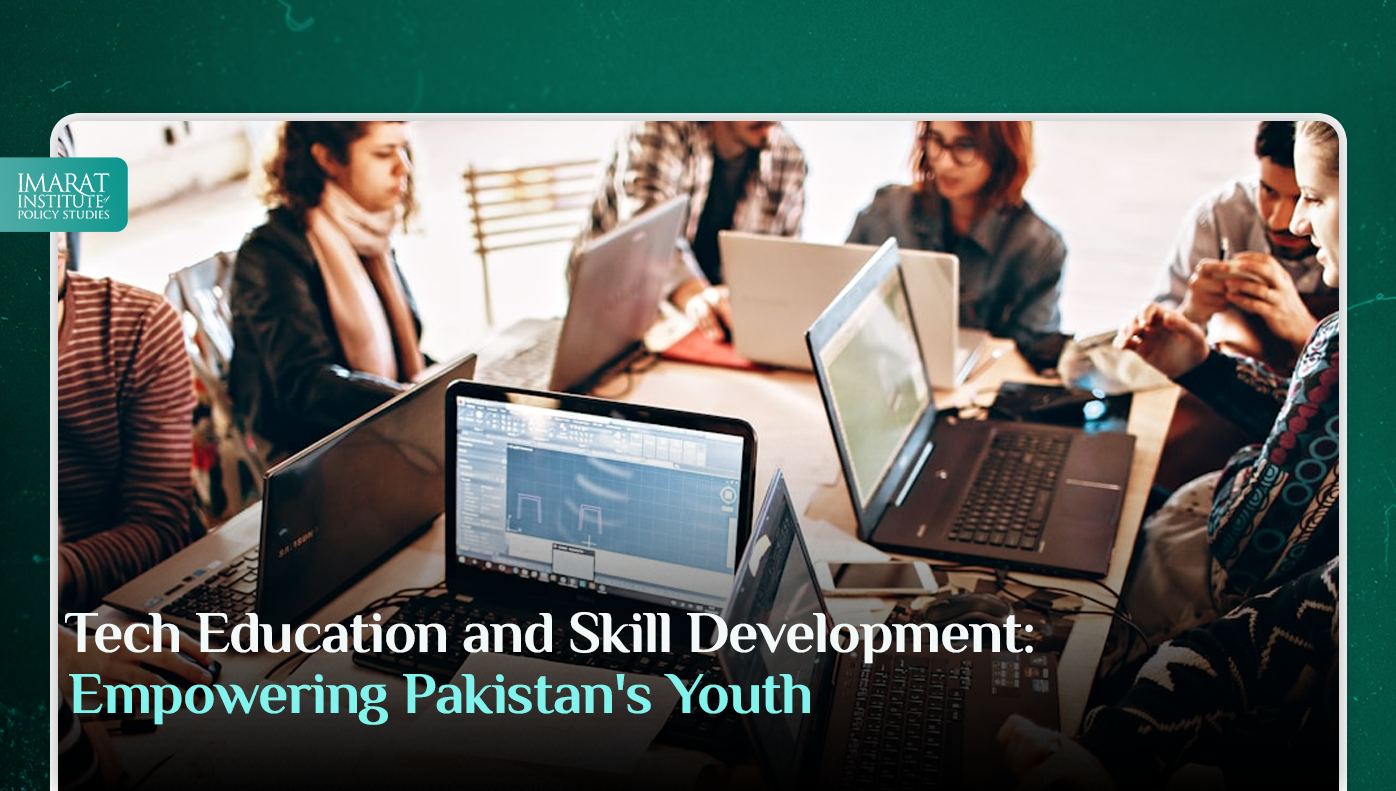In the dynamic landscape of the 21st century, where technology is the driving force behind innovation and economic growth, the importance of empowering youth through tech education and skill development cannot be overstated. Pakistan, with its youthful population and burgeoning tech industry, stands at a pivotal moment in history, where investing in the capabilities of its youth is essential for unlocking the country’s full potential and ensuring a prosperous future. This comprehensive exploration delves into the multifaceted aspects of tech education and skill development in Pakistan, highlighting the challenges, opportunities, and strategies needed to empower the next generation of digital leaders.
The Need for Tech Education in Pakistan
Pakistan’s transition to a knowledge-based economy hinges on its ability to equip its youth with the necessary skills to thrive in the digital age. However, the current education system in Pakistan often fails to adequately prepare students for the demands of the modern workforce, particularly in the rapidly evolving field of technology. There is a pressing need to revamp the curriculum and pedagogy to prioritize STEM (science, technology, engineering, and mathematics) education and integrate technology into classroom learning. Additionally, investments in teacher training and infrastructure are crucial to ensure that schools have the resources and capacity to deliver quality tech education to all students, regardless of their socio-economic background or geographic location.
Bridging the Digital Divide
While urban centers in Pakistan may have relatively better access to tech education resources, rural and underserved areas often lack the infrastructure and opportunities needed to foster digital literacy and skills development. Bridging the digital divide requires a concerted effort to expand access to tech education programs and resources, particularly in remote regions where internet connectivity and access to technology are limited. Mobile learning platforms, community technology centers, and digital literacy initiatives can play a pivotal role in democratizing access to tech education and empowering individuals from all walks of life to participate in the digital economy.
Fostering Innovation and Entrepreneurship
Tech education not only equips youth with technical skills but also fosters a culture of innovation, creativity, and entrepreneurship. Pakistan has a rich pool of talent and untapped potential waiting to be unleashed, and tech education programs can serve as a catalyst for nurturing the next generation of innovators and disruptors. By providing students with hands-on learning experiences, exposure to real-world problems, and opportunities to collaborate with industry mentors and experts, tech education can inspire creativity, critical thinking, and problem-solving skills that are essential for driving innovation and entrepreneurial success.
Addressing Gender Disparities in Tech
In Pakistan, gender disparities persist in access to education and participation in the workforce, particularly in STEM fields and the tech sector. Cultural norms, social expectations, and systemic barriers often discourage girls and women from pursuing careers in technology, leading to a significant underrepresentation of women in the industry. To address this imbalance, it is essential to promote gender equality and create an inclusive and supportive environment for female students and professionals in tech education. Initiatives such as mentorship programs, girls’ coding camps, and women in tech networks can help break down barriers, challenge stereotypes, and empower girls and women to pursue their passions and ambitions in the tech industry.
Building 21st Century Skills
In addition to technical expertise, tech education should also focus on building essential 21st-century skills that are increasingly in demand in today’s digital economy. These skills, which include communication, collaboration, creativity, critical thinking, and digital literacy, are essential for navigating an ever-changing and interconnected world. By integrating interdisciplinary and project-based learning approaches into tech education curricula, Pakistan can equip its youth with the skills they need to adapt, innovate, and thrive in a rapidly evolving digital landscape.
Collaboration between Government, Industry, and Academia
Ensuring the effectiveness of tech education initiatives requires collaboration and partnership between government, industry, academia, and civil society. Governments play a crucial role in setting policies, allocating resources, and creating an enabling environment for tech education and skill development. Industry partnerships provide valuable insights into industry trends, skill requirements, and job opportunities, while academia designs and delivers relevant and up-to-date curricula that meet the needs of the tech sector. By working together, stakeholders can leverage their respective strengths and resources to create a holistic and sustainable ecosystem for tech education and skill development in Pakistan.
Conclusion
Tech education and skill development are fundamental pillars of Pakistan’s efforts to empower its youth and unlock the country’s potential in the digital age. By investing in tech education, bridging the digital divide, fostering innovation and entrepreneurship, promoting gender equality, building 21st-century skills, and fostering collaboration between government, industry, academia, and civil society, Pakistan can ensure that its youth are equipped to succeed in the digital economy and contribute to the country’s socioeconomic development. With a concerted effort and a commitment to inclusive and equitable tech education, Pakistan can harness the power of its youth to drive innovation, economic growth, and social progress in the years to come.
This article is written by Radma Nouman. Radma is a research analyst at the Iqbal Institute of Policy Studies (IIPS).



Leave a Reply